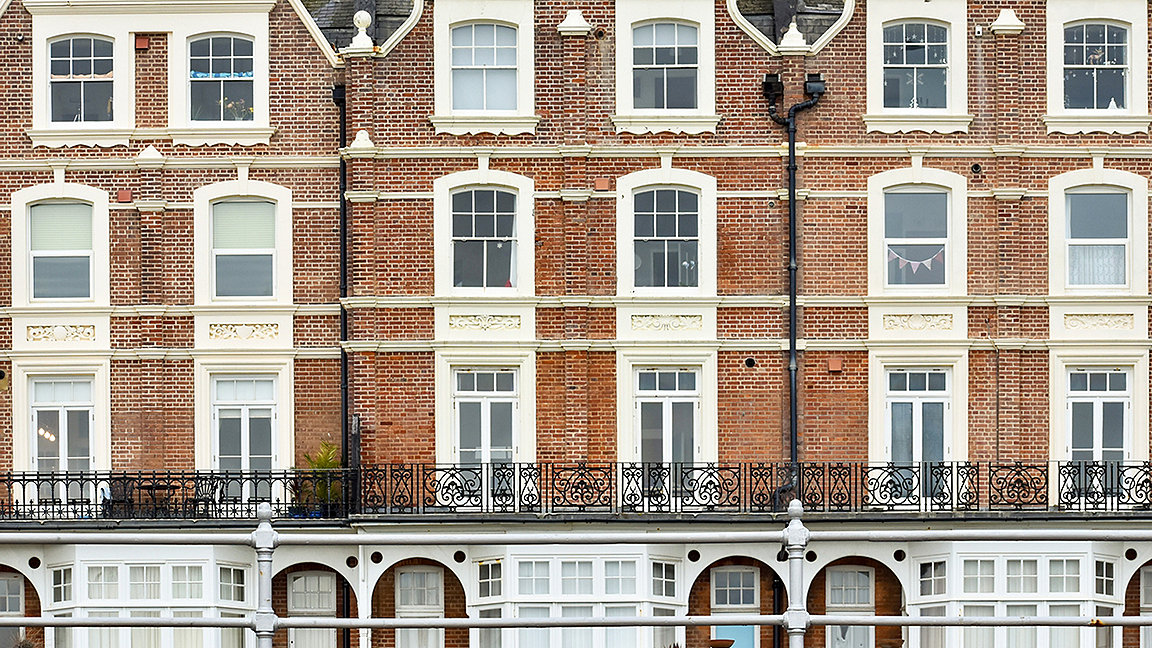
The Department for Levelling Up, Housing and Communities has set out its long-awaited proposals for reform of the private rented sector (PRS).
With some policy changes trailed in the 2019 Conservative Party election manifesto, the white paper A fairer private rented sector sets out the UK government's commitment to ensuring a fairer, more secure and higher-quality PRS.
The government believes that:
-
every tenant should have access to a good-quality, safe and secure home
-
all tenants should be able to treat their houses as their homes and be empowered to challenge poor practice by landlords
-
all landlords should have information on how to comply with their responsibilities, and be able to repossess their properties when necessary
-
landlords and tenants should be supported by a system that enables effective resolution of issues
-
local authorities should have strong and effective enforcement tools so they can crack down on poor practice.
Building on the Levelling Up and Regeneration Bill, the white paper introduces a 12-point action plan, which includes the following:
-
halving the number of non-decent rented homes by 2030 and requiring privately rented homes to meet the Decent Homes Standard
-
abolishing no-fault evictions, which are currently possible under section 21 of the Housing Act 1988
-
reforming the grounds for possession
-
allowing rent increases once a year and ending the use of rent review clauses
-
introducing a single new ombudsman that will oversee all private landlords
-
introducing a new digital property portal for landlords, tenants and local authorities
-
making it illegal for landlords or agents to have blanket bans on renting to families with children or those receiving benefits.
'All tenants should be able to treat their houses as their homes and be empowered to challenge poor practice by landlords'
How Decent Homes Standard has evolved
In the white paper Levelling Up the United Kingdom published earlier this year, the government committed to halve the number of non-decent rented homes by 2030 across the social and private rented sectors.
The Decent Homes Standard was formally introduced in 2000 as part of the housing green paper, Quality and Choice: A Decent Home for All. The government at the time announced a target to 'ensure that all social housing meets set standards of decency by 2010'. The Spending Review of 2002 extended the decent homes target to both social housing and private housing where occupied by vulnerable groups.
The current Decent Homes Standard has been in place since 2006, with minimum standard requiring that a property must be:
-
free of category 1 hazards (including hazards that pose a serious and immediate risk to a person's health and safety issues such as damp and mould, excess cold and structural collapse) under the Housing health and safety rating system
-
in a reasonable state of repair
-
provide a reasonable degree of thermal comfort.
They must also have reasonably modern facilities and services, including:
-
a reasonably modern kitchen of no more than 20 years old, with adequate space and layout
-
an appropriately located and reasonably modern bathroom and WC, no more than 30 years old
-
adequate insulation against external noise, where this is a problem.
In 2020, the government announced a review of the Decent Homes Standard to understand whether it was still appropriate for the social housing sector.
The review is in two parts. The first examined the case for changing the standard itself, while the second part is currently ongoing, and assesses how decent homes are defined. Areas that are being considered include:
-
ventilation
-
home security
-
thermostatic mixer valves (blending mains hot and cold water together in a constant flow for a safe temperature for washbasins, showers and baths)
-
window restrictors
-
electrical safety
-
refuse management
-
water efficiency.
The government intends to issue a public consultation on an updated Decent Homes Standard before the end of the summer.
RICS response to Renters Reform White Paper
RICS welcomes the commitment made by the UK government in the Renters Reform White Paper to raise professionalism and standards for letting agents and property agents.
Read the RICS response in full here.
Reforming grounds for possession
Under the reforms proposed in the white paper, landlords would only be able to evict a tenant in reasonable circumstances, which will be defined in law. The government would introduce a new possession ground for landlords who wish to sell their property, and another that allows them to evict tenants so they and their close family can move into the formerly rented house. However, these grounds would not be permitted in the first six months of a tenancy and would require two months' notice.
There would also introduce a new mandatory ground for eviction when tenants repeatedly accrue serious rent arrears. Eviction would be mandatory where a tenant has been in at least two months' arrears three times within the previous three years, regardless of the balance of arrears at hearing.
The notice period for the existing rent arrears eviction ground will be increased to four weeks, with government saying that they will retain the mandatory threshold at two months' rent arrears at the time of serving notice and at the time of the hearing. If the tenant has reduced their arrears below the specified amount (i.e. under eight weeks) by the time of the court hearing, possession under this ground will not be granted.
In cases of criminal activity or serious antisocial behaviour, the notice period for the existing mandatory eviction ground will be lowered. The government will also explore whether further guidance would help landlords and tenants to resolve issues at an earlier stage.
Introducing new tenancy arrangements
The white paper also sets out proposals for a single, period tenancy to replace existing PRS arrangements, including those for student accommodation in the sector; purpose-built student accommodation would be exempt, however.
All tenants who have previously had an assured tenancy or assured shorthold tenancy would be moved on to the single system of periodic tenancies.
'The government would provide at least six months' notice of a first implementation date after which all new tenancies would be periodic and governed by the new rules'
To enable a smooth transition, the changes would be implemented in two stages. The government would provide at least six months' notice of a first implementation date after which all new tenancies would be periodic and governed by the new rules; the timing will depend on when royal assent is secured for the legislation bringing them into effect. All existing tenancies would then transition to the new system on a second implementation date.
After this point, all tenants would be protected from section 21 eviction. The government plans to allow at least 12 months between the first and second implementation dates.
Under the new periodic arrangements, landlords would be required to provide a written tenancy agreement setting out basic information and both parties' responsibilities. Tenants would also need to provide two months' notice when leaving a tenancy.
Increases in rent to be more regulated
The government proposes that rent could only be increased once a year, that rent review clauses will be removed – ending automatic increases – and that the minimum notice landlords must provide for any change in rent is increased to two months.
Landlords would be required to repay any rent taken in advance – for example, where a tenant can't find a guarantor or does not have references – if a tenancy ends earlier than the period that the tenants have paid for. A power to limit the amount of rent that landlords can ask for in advance would also be introduced.
The government will also introduce changes that will strengthen tenants' ability to challenge rent increases deemed excessive through the First-tier Tribunal. For example, the tribunal will be prevented from increasing rent beyond the amount landlords initially asked for when they proposed a rent increase.
Ombudsman envisaged for all PRS
The white paper sets out a plan for a single, government-approved ombudsman covering all private landlords of property in England, regardless of whether they use an agent. The new ombudsman would allow tenants to seek redress free of charge where they have a complaint about their tenancy.
Membership of the ombudsman would be mandatory, and local authorities would be able to take enforcement action against landlords that fail to join.
The ombudsman would have powers, for instance, to compel landlords to issue an apology, provide information, take remedial action, or pay compensation of up to £25,000.
The government would also explore extending mandatory membership of a redress scheme to operators of residential park homes, private providers of purpose-built student accommodation, and property guardian companies.
Property portal to help with compliance
A new digital property portal is to be developed to help landlords understand and demonstrate compliance with their legal requirements. Landlords would be legally required to register their property on the portal.
As with the ombudsman, local authorities would be able to take enforcement action against private landlords who fail to join the portal.
Support for tenants receiving benefits
Under proposals outlined in the white paper, the government would make it illegal for landlords or agents to have blanket bans on renting to families with children or those receiving benefits – so-called 'No DSS' bans. However, the government plans to work with insurers to address landlords' and agents' concerns by addressing misconceptions (for instance, the belief that it is more difficult to insure properties where tenants receive benefits).
The government will also explore improvements to welfare support information for tenants and landlords, and help ensure that those who are unable to manage their rent can arrange direct payments to their landlord through their Universal Credit.
Under the proposals, tenants would have the right to request that they can keep a pet in their property as well, which the landlord would have to consider and could not unreasonably refuse. This measure would also make it easier for landlords to accept pets by amending the Tenant Fees Act 2019 so they can require pet insurance to cover any damage to their property.
'The government plans to work with insurers to address landlords' and agents' concerns by addressing misconceptions'
Reforms set for effect next year
The government is calling the reforms announced in the white paper 'the biggest shake-up of the private rented sector in 30 years'.
The changes certainly go much further than had been anticipated by many working in the sector, with the government setting out a clear intention of establishing a fairer system for the 4.4m households in the PRS and the 2.3m landlords letting their homes.
It plans to introduce a bill this parliamentary session that would implement the policies in the white paper, with the changes coming into effect from 2023.
RICS UK Residential Property Conference
19 Oct 2022 | 09:00 - 18:00 GMT | London
After two years online we are delighted to be welcoming people back in person to the RICS UK Residential Property Conference. With a housing market that some would lead us to believe is on the brink of collapse, ongoing political upheaval and inflation set to be over 8% in September, join us as we discuss how the UK residential property sector can withstand the challenges that are coming. See here for further details.


